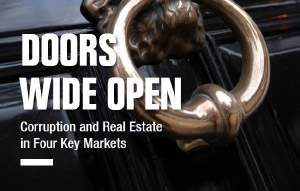11 April 2017, by Serena Lillywhite, Transparency International Australia.

Having lived in Cambodia, I have seen first-hand the impacts of poor transparency and elite capture of corporate ownership and benefits. Yet this is far from being just a developing country problem, it is a global one.
A key tool in the fight against corruption is increasing knowledge of who really owns companies around the world. Establishing a central and public register to record this beneficial ownership information is long overdue in Australia.
Transparency International is calling on the Australian government to do just that. Our submission to the Treasury in response to the Consultation paper on increasing transparency of the beneficial ownership of companies makes its case clear.
Companies can and do act as attractive “get away cars” to launder the proceeds of crime, corruption, tax evasion and illicit financial flows – washing the funds clean before they enter the financial system. This is made easier and less risky for individuals if the beneficial ownership of these companies remains unknown.
Take the example of laundering the proceeds of crime through real estate transactions. Transparency International’s March 2017 report, Doors Wide Open, makes it clear – a beneficial ownership register would help tackle rampant money laundering through the property market. The purchase of real estate with funds from suspicious sources, and through trusts and shell companies, is all too easy. In Australia, for example, real estate agents are not required to submit suspicious transaction reports and are not covered by the Anti-Money Laundering and Counter Terrorism Financing Act 2006.
The Australian government has international commitments to increase transparency, combat corruption and tackle money laundering and illicit financial activities through the: UN Convention against Corruption; Financial Action Task Force; Open Government National Action Plan; UK Anti-Corruption Summit; and G20 High Level Principles on Beneficial Ownership. It’s an impressive list, but now we need more action.
All these recognise that a beneficial ownership register is essential to protect the integrity of financial systems and to prevent the misuse of corporate structures, including trusts, for corrupt and other criminal activity. We need to know who owns and benefits from the activities of companies. The register should be public because this makes it easier for law enforcement to do its job and for investigative journalists and the wider public to assist them.
The UNCAC Implementation Review Mechanism and the OECD Working Group on Bribery in International Business Transactions provide the perfect opportunity to review Australia’s progress against anti-money laundering obligations. Naturally, the FATF reviews also help check compliance with commitments.
Establishing a register of beneficial ownership will not be without its challenges. The commitments by the Australian government and consultations to date are welcome, but anything more remains uncertain. The UK public beneficial ownership register provides a good model for Australia. It’s time to start the engine and fine-tune as we go.
About the author

Serena Lillywhite is CEO of Transparency International Australia. Serena is an internationally respected corporate accountability practitioner, researcher and advocate, with 15 years’ experience. She has expertise in business and human rights, labour rights, governance, transparency and accountability. Serena previously led the Oxfam Australia Mining Advocacy Program, and has lived and worked in many corruption prone countries. Serena is an adviser to the OECD on the OECD Guidelines for Multinational Enterprises. She has held senior positions on academic, government and corporate advisory boards.



